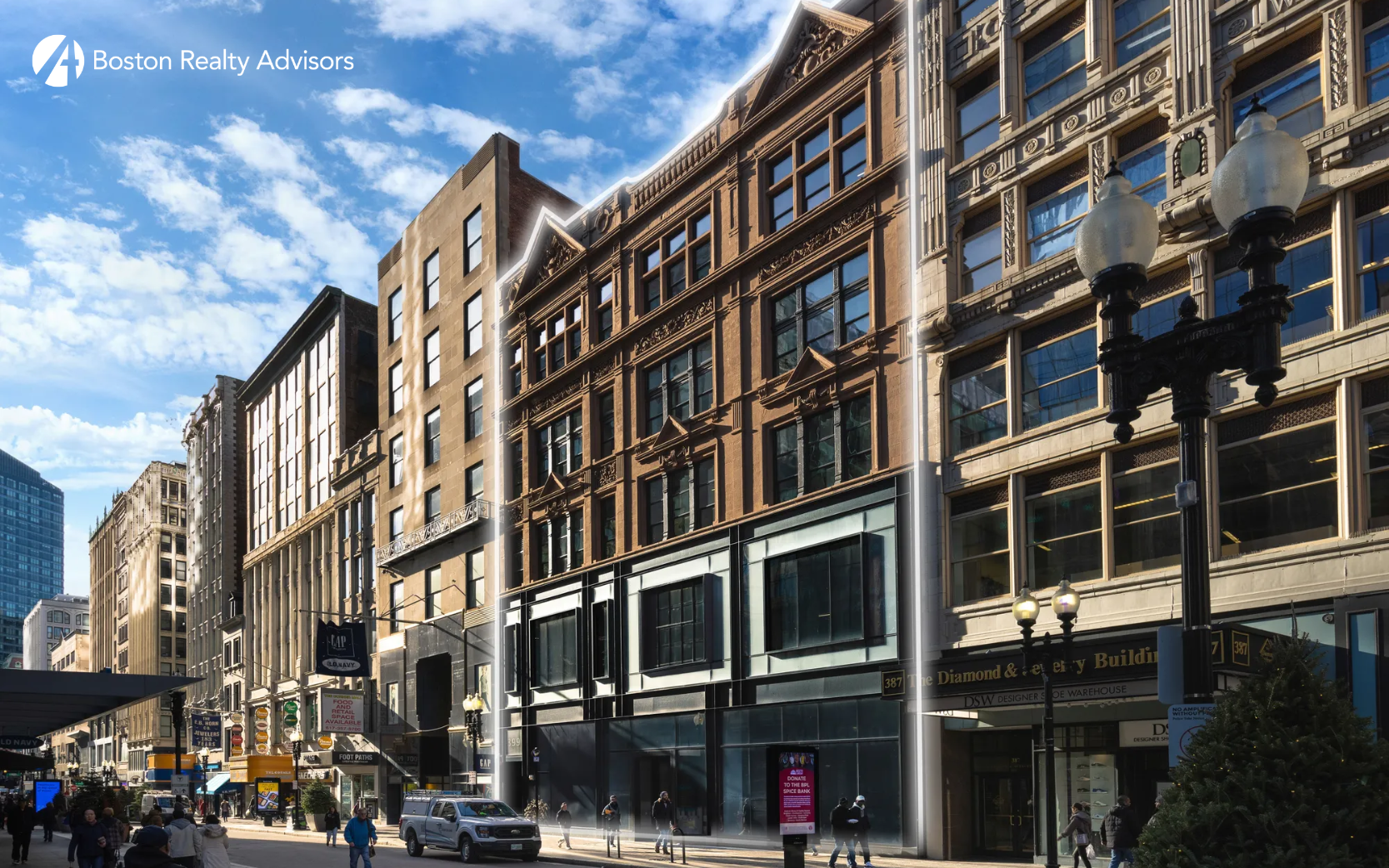
The newly redone facade of 399 Washington St. in Downtown Crossing. DAVID L. RYAN/GLOBE STAFF
The 76,000-square-foot retail and office building at 399 Washington St. is up for sale for the first time since 2017
By Globe Correspondent, Updated July 5, 2024, 12:01 a.m.
The last time shoppers walked through the doors of 399 Washington St. in Downtown Crossing, less than two years had passed since the Red Sox won their first World Series in eight-plus decades, the Big Dig was still underway, and the financial collapse of 2008 was but a glint on the horizon.
Yes, since the ground-floor Barnes & Noble closed its doors in 2006, the five-story building in the heart of downtown’s retail district has sat empty, its historic facade overlooking a Washington Street that has since transformed around — and without — it.
Despite the ravages of the COVID-19 pandemic on both office and downtown retail markets, the thoroughfare has bounced back to “become a success story that no one’s really talking about yet,” said Michael Nichols, president of the Downtown Boston Business Improvement District.
Nearly every other storefront along the corridor from City Hall to the Theater District not undergoing redevelopment either has a tenant or one committed to a lease moving in — save for three vacancies, he said.
“This one, you know, has been the most chronic,” Nichols said. “399 Washington … has been closed longer than most people’s memory, I think, of the space.”
Now there’s an opportunity to change that. The 76,000-square-foot retail and office building is up for sale for the first time since 2017.
That’s when Chicago-based L3 Capital and LaSalle Investment Management purchased the property for about $63.3 million. They spent millions more in upgrades, designed to lure a prime retailer to the street-level space and office tenants above.
No tenants ever came. Late last year, lender Wells Fargo took the property back from L3 and LaSalle. And now the bank is putting it up for sale.

With the exception of the fourth floor, most of the building is in shell condition, said Nicholas Herz, managing director and partner at Boston Realty Advisors, which Wells Fargo hired to manage the sale. But the combination of its history and its modern improvements make it a unique property.
“We love taking prospects through that building,” said Whitney Gallivan, managing director and partner at BRA and a prominent retail broker in Boston. “It’s gorgeous.”
But the costs — both of purchasing the building and then renovating it — may have led to asking rents that were out of sync with the market, especially when foot traffic plunged during COVID.
“The former owner … they paid a good number,” Gallivan said. “I’m sure as a result of paying such a high sale price to buy it, they had to likely ask for high rent to make up for that.”
As for the going price, Gallivan said BRA is in the final round of a bid process, but so far has received offers between $10 million and 20 million. City records show the property’s assessed value to be nearly $20 million.
Recently, downtown buildings have sold at prices substantially less than they fetched prepandemic. A remote-based workforce has left city offices largely empty, dealing a blow to foot traffic that’s sent ripples through the street economy.
There remain investors who are optimistic there will be a return-to-office movement though, said Eric Shabshelowitz, vice president of commercial at Cabot & Company, a Boston-based real estate brokerage firm not involved in the 399 Washington sale. But others will be wary, he said, in part because of a shift to city tax structure being proposed by Mayor Michelle Wu that could hike commercial property tax rates to prevent a surge in residential taxes.

High interest rates can also be a deterrent for investments, Shabshelowitz said.
“The interest rates just make it extremely difficult for those types of investors to buy and hold right now and speculate,” he said. “The carrying costs are too high.”
Still, Nichols noted, more people are living downtown all the time, providing a key ingredient for a successful retail ecosystem. Plus, the neighborhood now has only 18 percent fewer visitors, day or night, than prepandemic, making Boston “one of the strongest bounce-backs in the country,” he said.
“Having [399 Washington] be relisted and remarketed is very likely, I think, in this environment, to lead to a buyer that will do something great for the downtown,” he said.



